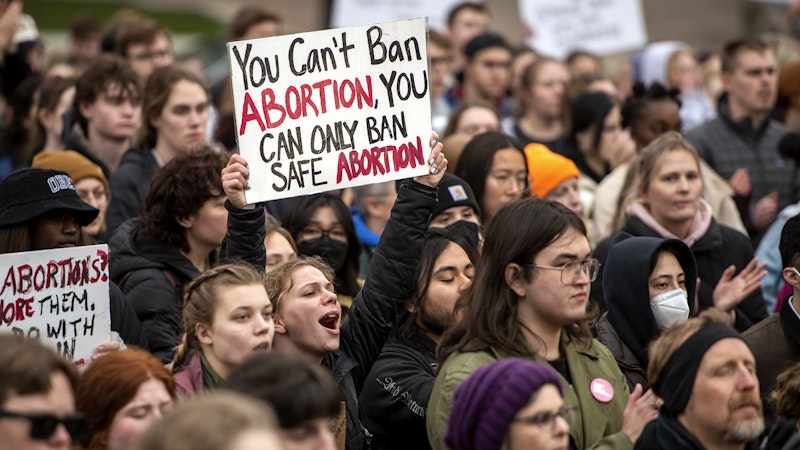People can’t always depend on the law to create the social change they want. In these instances, social stigmas and taboos are the more feasible way to create political change. Stigma’s sometimes bad—like when drug addicts feel they can’t seek help for their addiction—but that’s not always true. One recent example involves boys playing field hockey in Massachusetts. It’s the only state in the country that allows boys (who identify as boys) to play girls’ high school field hockey. Over 40 years ago, the state’s Supreme Judicial Court’s interpretation of the state’s Equal Rights Amendment determined that if a school lacks a boys’ team in a sport, boys can play for the corresponding girls’ team.
Regardless of how one feels about the ruling, the court won’t reverse it soon. Equal rights are equal rights, and that goes both ways. If not, they’re merely special privileges for one group and not the other. The issue received increased scrutiny earlier this month when a boy playing for Swampscott drilled a ball that hit a Dighton-Rehoboth girl in the face, hospitalizing her. The superintendent of Dighton-Rehoboth schools called for more safety measures in field hockey. Also, a Dighton-Rehoboth team captain penned an open letter to the Massachusetts Interscholastic Athletic Association calling for the body to create separate field hockey teams for boys. Both understand that politicians will never amend a feminist Massachusetts constitutional amendment to protect the integrity of girls' field hockey, a sport few people care about.
Others may still call for Massachusetts to join the other 49 states because they find boys competing against girls ridiculous. Boys help field hockey teams win state championships, set school records, earn league all-star honors, and take roster spots and playing time away from girls. All three perspectives have merit. Sports should take actionable steps to reduce injuries, schools should increase their athletic offerings, and boys should play sports against other boys, not girls. Given the impossibility of changing the state constitution, changing the culture around boys playing on girls' teams sounds easier.
What if more girls were brave enough to voice their opposition to boys dominating in their respective leagues? What if the media, including right-wing media, brought greater attention to the issue, making people more aware of what’s happening? The same is true for political activists; instead of trying and failing repeatedly to enact voter ID in Massachusetts because people falsely think Donald Trump won the 2020 presidential election, what if people spent time voicing their opinions on issues like this?
If a strong stigma exists against boys playing field hockey, girls' volleyball, or girls' soccer, fewer will play. That isn’t to say people should harass children because they disagree with a kid’s decision to play a sport, but they can make their opposition known without targeting individuals.
The same is true of abortion. Liberal and progressive politicians want no limits on abortion, oppose born-alive protections, and dehumanize the unborn child; they even pretend to not know when life begins and call unborn children clumps of cells (we’re all clumps of cells). Most Americans support legal abortion. The pro-choice side's referenda victories in Kansas, Ohio, and Montana tell us they can likely win on abortion in any of the 50 states. Whether abortion’s legal or not, the pro-life side can’t let the pro-choice side normalize abortion. Maybe the masses will support legal abortion as an option, but if you want to save unborn lives, individuals' actions also matter. Some people who support legal abortion personally oppose it and would never have an abortion if pregnant or commit to raising a child if they impregnate their wife, girlfriend, or local sex worker. We need more people like this, in addition to pro-lifers. I support banning abortion but understand that it’s one facet of reduction.
An extreme instance where social stigmas and taboos already trump the law is the age of consent. I think states should set their age at 18, but it’s 16 in many states, including Massachusetts. Yet, instances of adult men dating 16-year-olds are rare, and few would approve of them. If any of my friends wanted to date a 16-year-old girl, I can’t imagine anyone they know supporting their decision.

